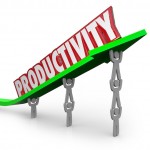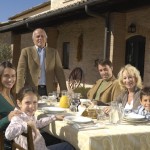Doing the right thing, for the right reason and at the right time is the sweet spot of success. Sometimes being stretched by too many tasks in life others are making the choices for me and I bet it’s the same for you. We often confuse being busy with being productive with little Margin. Accepting every opportunity, squeeze in one more commitment, one more phone call, one more email. We operate on the principle of scarcity rather than abundance and are tempted to take everything on all at once! Change your thinking and it will change your life.

In ancient times, Moses father in law Jethro was the first life coach and business consultant. Watching Moses exhausting himself judging all the Israelites, he suggested the appointment of others to handle the simpler cases and freeing Moses to judge the complex ones.
Moses listened to his father-in-law and did everything he said. He chose capable men from all Israel and made them leaders of the people, officials over thousands, hundreds, fifties and tens. They served as judges for the people at all times. The difficult cases they brought to Moses, but the simple ones they decided themselves.
Exodus 18:24-26
If you don’t believe the Bible, or are not a Christian, a great resource that helps apply this idea to discern, drop, delegate, or delete everything that is not essential is called Essentialism: The Disciplined Pursuit of Less by Greg McKeown.
Using numerous real world examples he clearly demonstrates that finding your essential skill set and marrying it with your greatest area of impact will help you learn and create what is essential to succeed with faith, family, work, and play.
It’s a way of thinking and acting that influences the way you will lead your employees, family and yourself. Essentialism. can help you achieve more with less effort similar to The 80/20 Principle but more comprehensive.
7 Big Ideas in this book:
- The power of choice: We all have over 6,000 waking hours per year, of which 2,000 are spent at work. This leaves 4,000 hours a year when a person is not working or sleeping. Use the power of choice over all your time to make better choices.
- Discern the trivial many from the vital few: “There are far more activities and opportunities in the world than we have time and resources to invest in,” McKeown says. “And although many of them may be good, or even very good, the fact is that most are trivial and few are vital.”
- Power of Trade-Offs: It is real, true and unavoidable – doing one thing automatically means missing out on another. Overcommitted schedules drain us of time for the truly important things like work, life, family and play. Essentialism shows how to balance every opportunity against tradeoffs.
- Clarity: Essentialists pass up 90% of opportunities. The power of “no” and the process can spare you as sometimes making one decision can later make a thousand automatically. You end up “owning” more than you expected.
- Flow: 40% daily actions performed each day aren’t actual decisions but The Power of Habit, The Genius of Routine actually increases not lessens productivity.
- Become a Journalist; Not to remember facts by journaling but to understand, gain wisdom, meaning, hope and purpose in those facts.
- How to Say No: Well laid out plans for rejecting the non-essential.
Live a courageous life with no regrets.
Attitude: Are you content with your time and energy results?
Action: Commit to order and read or listen to this resource and move towards essentialism.
Question: Do you have an essentialist approach to life?
Resource: Essentialism: The Disciplined Pursuit of Less by Greg McKeown









Please note: I reserve the right to delete comments that are offensive or off-topic.